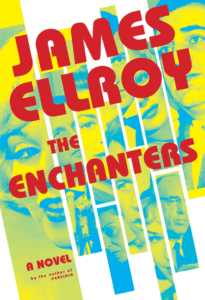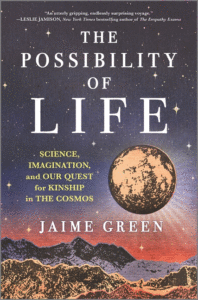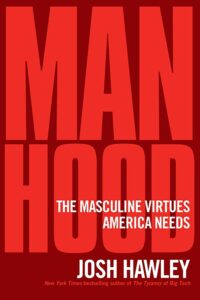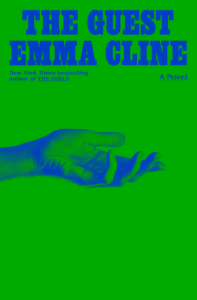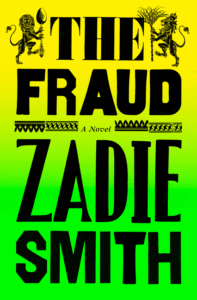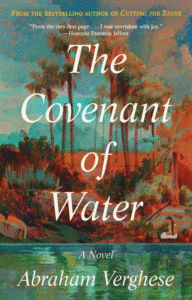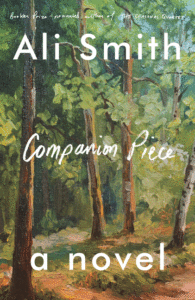Good book criticism is booming right now. I have at least some degree of confidence in saying this because for the past six years, I’ve been keeping track of my favorite reviews to prepare for these annual roundups, and my 2023 longlist was by far the biggest and most difficult to narrow down.
We’ve lost venues for writing about books (RIP Astra), but we’ve gained some as well, including a few we feared were dead (welcome back, Bookforum). But publications aside, the sheer number of critics who take reviews seriously as a genre of creative nonfiction—with attention to style, momentum, humor, and surprise—feels to me like it’s only getting bigger.
Here are my 10 favorite book reviews of 2023, though it easily could have been 100.
Brought to you by Book Marks, Lit Hub’s home for book reviews.
*
Parul Sehgal on James Ellroy’s The Enchanters (The New Yorker)
Sehgal is still the GOAT when it comes to writing ledes. This one might be my all-time favorite of hers.
“In the spring of 1995, dozens of snakes appeared on the beaches of Southern California. Panic. A Biblical curse, some held, to punish the wicked. ‘California has been given so many signs: floods, drought, fires, earthquakes lifting mountains two feet high in Northridge,’ the California congresswoman Andrea Seastrand declared. ‘Yet people turn from His ways.’ The Los Angeles Timesmade soothing noises, counselling against the curse theory. But the obvious person to consult would have been a native son of Los Angeles who saw geography as destiny, who specialized in snakes of all stripes, and whose characters find, in natural disasters, their only competitors in the making of mayhem.”
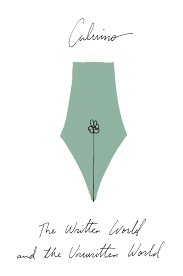
Merve Emre on Italo Calvino’s The Written World and the Unwritten World, translated by Ann Goldstein (The New Yorker)
Emre and Calvino are a dream pairing on the level of Scorsese and DiCaprio. I also love her use of second person, which can be as difficult as a broadsword to wield well.
“The bookstore in your neighborhood sits on a busy corner. You pass it on your walk to work in the mornings, and on your walk home in the evenings, and although you sometimes admire the clever geometries of its window display, rarely do you take a closer look. But, not long ago, the sight of a particular book made you pause. Your eye lingered on its pure-white cover and on a curious shape cut into it. Without thinking, you walked into the store. The clerk was working at her computer. The other customers were leafing through books lifted from the great pyramids of new releases on the front table. No one paid any attention to you.”
Phillip Maciak on Jaime Green’s The Possibility of Life (The New Republic)
I rarely laugh out loud when reading criticism, but Maciak made it happen in this take on one of my favorite books of the year.
“I remember being considerably less excited about seeing Ellie’s dad than Ellie was when I saw Contact in high school… Likewise, I recall being similarly disappointed when Jessica Chastain unravels the mysteries of the universe in Christopher Nolan’s own visually arresting wormhole epic Interstellar, only to realize that the unseen intelligence transmitting messages to her was also, if you can believe it, her long lost father Matthew McConaughey. Are there any aliens out there who don’t look like our dads? My kingdom for a xenomorph!”
Ginny Hogan on Josh Hawley’s Manhood (The Nation)
Hogan is the other critic who made me laugh out loud this year, right from the first paragraph.
“Josh Hawley, best known for fleeing a mob he helped incite, has written a book on manhood. In Hawley’s defense, he began writing the book before everyone found out about the running-away situation. But it was, unfortunately, after he did the running.”
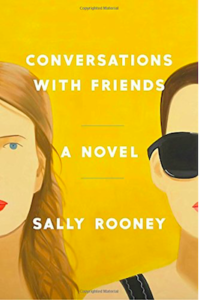
Namwali Serpell on 10 recent novels (New York Review of Books)
Serpell’s criticism is written with the same striking, fluid precision as her fiction. It’s impossible to stop reading her once you start. She also coins a new phrase here, ambisextrous.
“Lately there’s been a spate of novels written by young women that have a remarkably similar plot. I’ve been calling them the ‘hit me’ books. Let’s be less incendiary: let’s call them the ‘remaster novels.’”
Michelle Hart on Emma Cline’s The Guest (Los Angeles Times)
I love it when a critic instills a sense of the author’s style into their own writing, as Hart does here.
“They say not to use high beams in fog. The water vapor refracts the intense glare of headlights back toward the driver in a way that actually decreases visibility. Best, then, to use low light. This is the vibe of a story by Emma Cline, who writes so luminously about the haziness of female desire that even the most revelatory moments unfold in a sort of soft focus.”
Ayesha A. Siddiqi on Zadie Smith’s The Fraud (Bookforum)
First of all, Bookforum is back! What a treat. Covering a book by a literary powerhouse like Smith is no small task, and Siddiqi adds crucial context on how The Fraud conflicts with Smith’s other writing about art.
“The way Smith treats every detail in her book as equally important forecloses The Fraud’s potential and exposes how ill served Smith is by her philosophy on fiction. After years of deriding the shallowness of treating art as a site of radical struggle, Smith is left with a book that falters as art because of how shallowly it treats political consciousness.”
Howard Rosier on Celes Tisdale’s When the Smoke Cleared (The Nation)
Rosier is one of our clearest-eyed critics of historical fiction, nonfiction, and poetry, and an expert at weaving past narratives together with new insights.
“The smoldering embers of a failed revolution hang over When the Smoke Cleared, a collection of poems by Attica inmates along with Tisdale’s journal entries from the period, as well as a searing introduction by Nowak. Among the many strengths of this anthology is a blunt acknowledgment of the uprising as part of much larger historical mechanisms: namely, the last gasps of the civil rights movement and the nation’s violent reaction to Black liberation.”
Malavika Praseed on Abraham Verghese’s The Covenant of Water (Chicago Review of Books)
Praseed brings her own experience and historical knowledge to bear in this concise but nuanced look at Verghese’s first novel in 15 years.
“Kerala is a complex region, anchored by its history of multiple religions, competing political ideals, and creative legacy. I have seen these firsthand in myriad visits to my grandmothers’ houses, and heard the stories my mother and father often tell. Verghese brings all these elements to the forefront with numerous plotlines concerning the Saint Thomas Christian faith, the rise of Communism in Kerala, and the inclusion of literary and artistic characters.”
Lauren LeBlanc on Ali Smith’s Companion Piece (Los Angeles Times)
LeBlanc accomplished the feat of getting me interested in a book I had unfairly dismissed as an optional “spin-off” of Smith’s seasonal quartet.
“It is remarkable to be alive at the same time as Scottish writer Ali Smith. No one else, I would argue, captures our ongoing contemporary nightmare in a manner that is both expansively imaginative and the perfect mirror of its abrupt absurdity.”


